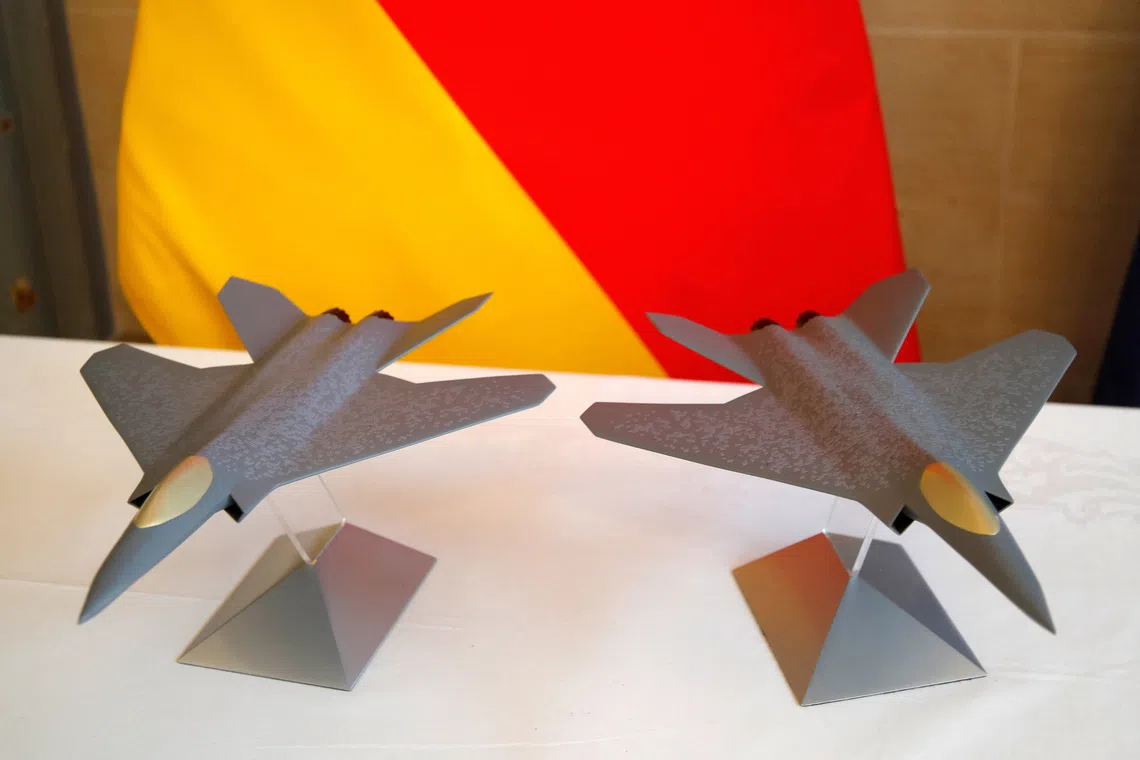Berlin, Paris push companies for fighter jet agreement by mid-December
Sign up now: Get ST's newsletters delivered to your inbox

FILE PHOTO: Scale models of the Franco-German-Spanish Future Combat Air System (FCAS / SCAF), Europe's next-generation fighter jet, are seen in Paris, France, February 20, 2020. REUTERS/Charles Platiau/File Photo
Follow topic:
PARIS/BERLIN - Germany and France are piling pressure on industrial leaders to find a solution for the troubled joint fighter jet project FCAS - or SCAF - by mid-December, two sources briefed on the matter told Reuters on Friday.
Speaking on condition of anonymity, one of the sources said the CEOs of the companies involved were meant to agree on a deal by December 18.
France's Dassault, Airbus and Indra - the latter two representing Germany and Spain respectively - are among the main companies participating in the Future Combat Air System (FCAS) to replace France's Rafale and German and Spanish Eurofighters with a next-generation fighter from 2040.
Initiated in 2017 as a model for European defence collaboration, the project has been plagued by delays and infighting over workshare and intellectual property rights between France and Germany and their national industries.
Options now under discussion include fully terminating the project or significantly scaling it down by eliminating important elements including the development of the joint fighter jet, according to sources familiar with the matter.
German Chancellor Friedrich Merz and French President Emmanuel Macron aim to decide by year-end whether to proceed with the project or pursue an alternative approach.
"The political process has repeatedly passed the buck from the chancellor and president to the ministers, then back to the ministries and procurement agencies," an industry source said, expressing frustration.
"The only real change is that French politics has become more unstable. Now, industry is supposed to find common ground that has long since disappeared from the political process."
Berlin has blamed Dassault for blocking the programme's next phase by seeking sole leadership of the project. Sources said France had demanded a workshare of some 80% but Dassault denied this.
The second source noted that the countries' air chiefs had been tasked with checking whether national requirements for the future fighter jet converge, and underscored that convergence had been established at military level. REUTERS

